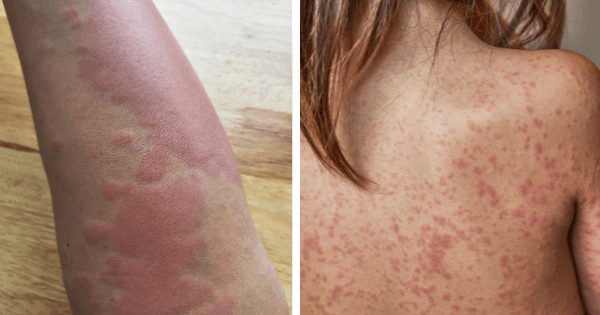Our skin is often referred to as the “mirror of health.” While many of us worry about acne, pimples, or cosmetic concerns, the truth is that skin changes can reveal much more than we realize. Sometimes, these indicators can point toward serious underlying health conditions that require immediate medical attention.
1. Dark Spots That Appear Suddenly
Unexpected dark patches on your skin should not be ignored. In some cases, they may be linked to adrenal gland problems such as Addison’s disease. Other related symptoms may include:
-
Constant fatigue or muscle weakness
-
Joint or body pain
-
Low blood pressure or dizziness
-
Loss of appetite and low blood sugar
If you notice a combination of these issues, consult your healthcare provider immediately.
2. Skin Discoloration or White Patches
White spots or patches could be an indication of vitiligo, a condition where the skin loses its natural pigment. This happens when the cells responsible for skin color stop functioning properly. Though not life-threatening, it often requires evaluation by an endocrinologist or dermatologist.
3. Persistent Rashes
Rashes may seem common, but when they are severe, recurring, or resistant to treatment, they can signal more serious conditions. Some possible causes include:
-
Allergic reactions to food or medication
-
Infections such as chickenpox (dangerous in adults)
-
Severe skin conditions like Stevens-Johnson Syndrome
If a rash is painful, spreading, or accompanied by fever, seek urgent medical care.
4. Swelling and Edema
Frequent or daily swelling of the skin (especially in the legs, feet, or eyelids) may point to hypothyroidism — a condition where the thyroid does not produce enough hormones. Along with swelling, you may also notice:
-
Dry, rough skin
-
Hair loss
-
Unexplained weight gain
-
Tiredness or depression
These are not symptoms to ignore. A doctor can confirm the diagnosis with simple tests.
5. Moles That Change Over Time
Most moles are harmless, but any sudden changes should raise concern. Watch out for:
-
Moles that grow quickly in size
-
Painful, itchy, or bleeding moles
-
Uneven borders or unusual color changes
These could be signs of skin cancer and require immediate evaluation by a dermatologist.
6. Acne Beyond the Usual Breakouts
While acne is common in teenagers and adults, persistent or severe acne can sometimes signal deeper issues, such as:
-
Hormonal imbalances
-
Digestive problems
-
Excess oil production
Along with skincare, medical consultation can help determine if an underlying health condition is contributing to your acne.
7. Flaking or Peeling Skin
Occasional flaking can happen due to dry weather, but if your skin peels excessively or repeatedly, it may be linked to:
-
Vitamin deficiencies
-
Hormonal changes
-
Allergic reactions
-
Autoimmune diseases
Don’t overlook this symptom if it persists.
8. Excessive Sweating
If you often sweat excessively without physical activity or heat, it may be connected to Graves’ disease, an autoimmune condition affecting the thyroid gland. Additional symptoms may include:
-
Thinning skin
-
Constant itching
-
Rapid heartbeat or anxiety
Early treatment is essential to prevent complications.




